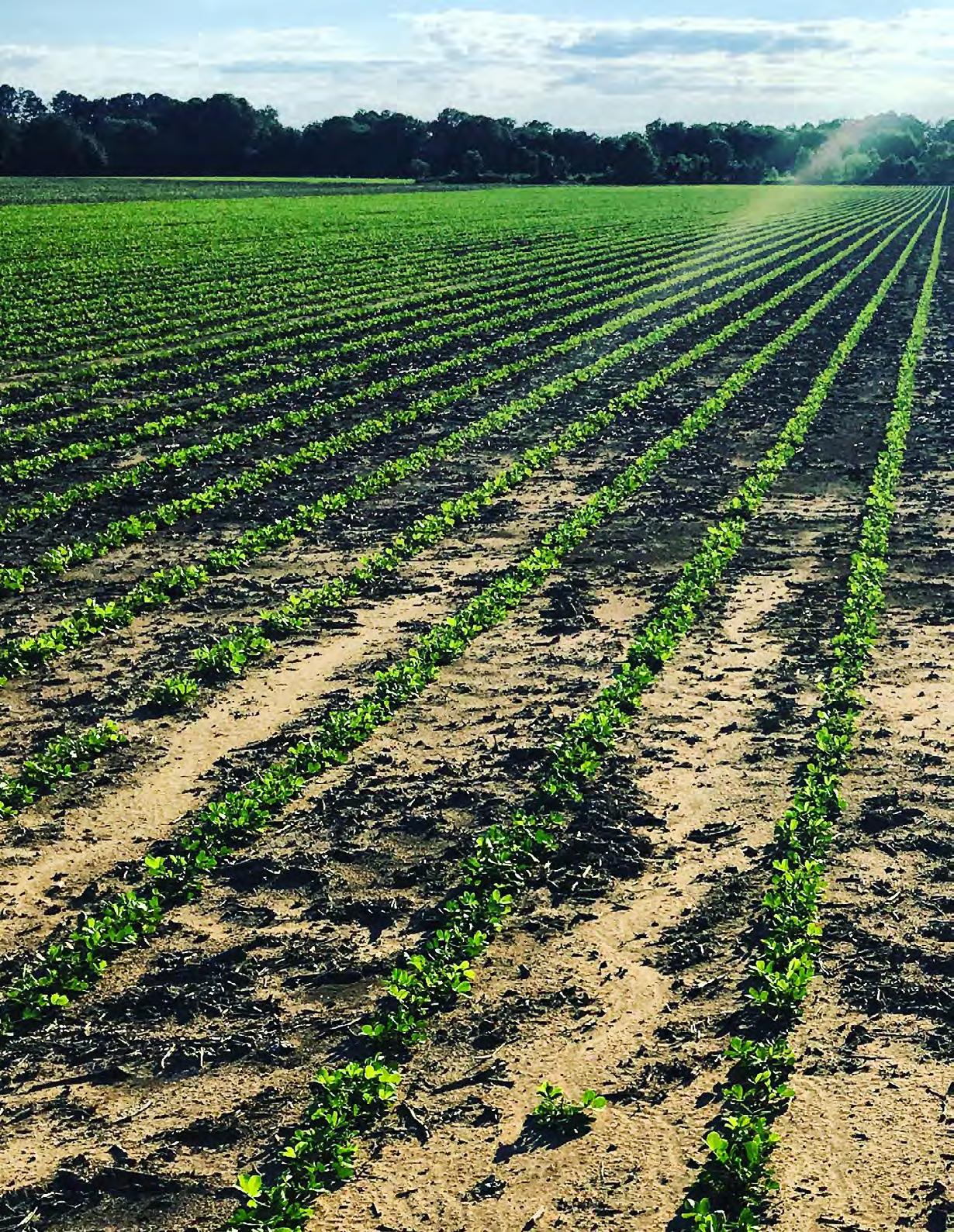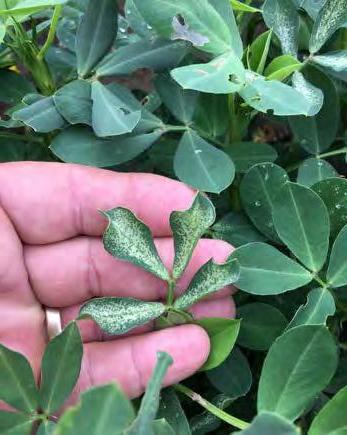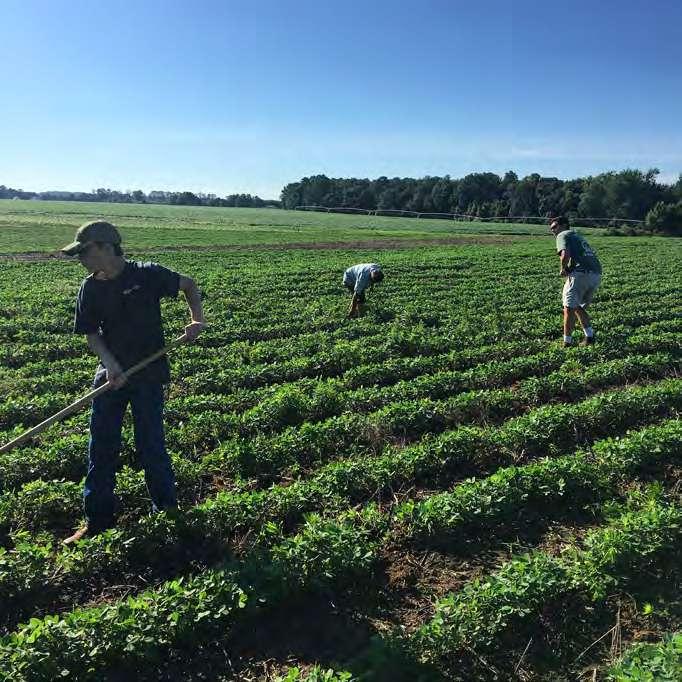
3 minute read
Commercial Peanut Farming
by adigeorgia
Peanuts Gain New Ground in Cherokee County
Celebrating a first in the agricultural history of Cherokee County, the harvesting of a successful peanut crop last fall introduced new possibilities in the farming community.
Advertisement
Nick McMichen proudly displays the bounty of his October peanut harvest to Jessica Proctor, 2017 Miss Alabama.
The peanut crop was a product of Nick McMichen and company, who planted in mid-May and harvested some 140 days later, in October 2017. McMichen explained that the idea of peanut farming had been at the discussion table before. They have watched farms in nearby counties plant peanuts with excellent results for over ten years but a glut in the marketplace in recent years had stalled their participation, and they were not willing to jump into an insecure market. However, there was an impressive turn when peanuts in general gained more attention in the world market. China seemed to have acquired an affinity for the peanut, discovering that peanuts were not only delicious but also an affordable food source rich in protein. McMichen says China will ‘take all the peanuts we can produce.’ Commonly, we think of peanuts growing in South Georgia, the Carolinas, Virginia, and to some extent in Texas. To consider peanut farming here in Alabama seems unusual, but new ground offers sound benefits. McMichen noted that the fresh ground is less worrisome for a disease. “It is a good reason we can get higher yields with much smaller inputs. Where you grow peanuts, you worry about white mold and having to use fungicides and the like. We didn’t require much of that at all. Our inputs are less expensive, even though we have to haul 350 miles one way to process. Peanuts are “scavengers,” and do not require a lot of fertility. They are also excellent in cotton rotation and help to clean the soil.


Nick McMichen produced the first peanut harvest on his farm in Cherokee County in October 2017


We don’t have to apply pesticides or very little herbicides. We just have to be selective as to where we are planting—peanuts require sandy soils, not heavy clays, and ground with no rocks. Through diligence, we can support 250 acres a year. Not everything went smoothly with this first peanut crop. “It was a difficult year, weather wise. Planting went as planned, but lack of sunshine hampered the harvest somewhat. October was rainy and cloudy. Not only do peanuts need to be dry, but also the soil, but even with our problems, we yielded 5,000 lbs. per acre,” explained McMichen. Not considered just a rotation crop, peanuts will be joining the big four crop productions in the area—wheat, soy, corn and of course cotton. With today’s technology, farms operate smoothly with fewer people, and such is true with Nick McMichen’s endeavors. Help in planting peanuts was mostly a family business with McMichen, his dad Randall, thirteen-year-old son Matt, Tyler Bruce and one additional helper to pitch in. Advice and consultation came from Eddie McGriff, Regional Extension Agent, who shared knowledge from 25 years in service to peanut farmers in Statesboro, Georgia. Available farmland stretches over 50 miles from Coosa, Georgia, to Etowah County. Some 1500 acres are in Cherokee County. One acquisition designated for peanut production next year is known as the Clemones Farm in Floyd County, Ga. Just outside Cherokee County, the farm holds the distinction of having the first mechanical cotton picker in the state of Georgia. A fitting place to welcome Cherokee County’s peanut expansion program. Natives of Cherokee County for generations, Nick and wife Frieda ( Jordan) live in the Bomar community at the original home site of her family—acquired by her greatgreat grandparents in 1842. The farming operation is headquartered in the Alexis community, property that belonged to his grandparents. Nick McMichen continues the tradition of farming with a modern, business approach. With technology driven equipment, smart communications and market access, he can be assured that just like his cotton, his next crop of peanuts can reach any spot on the globe. That is American agriculture at its finest.



Help in planting peanuts was mostly a family business with McMichen, his dad Randall, thirteenyear-old son Matt, Tyler Bruce and one additional helper to pitch in.










